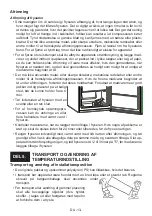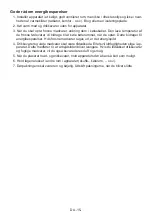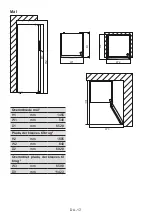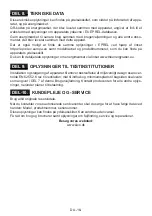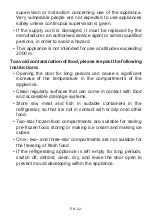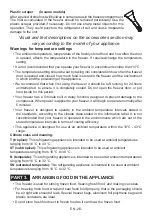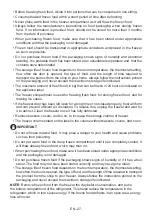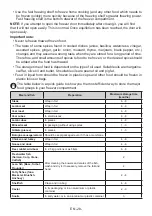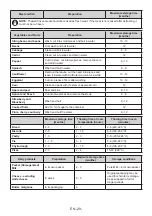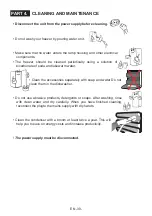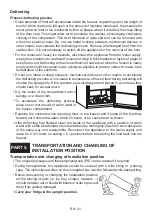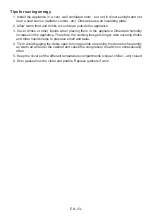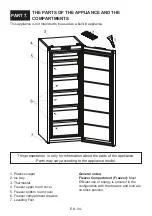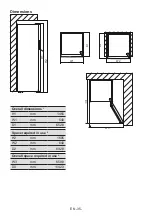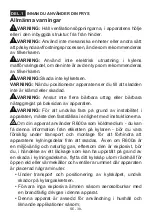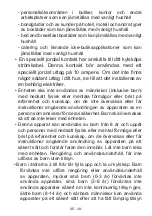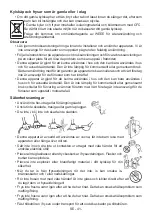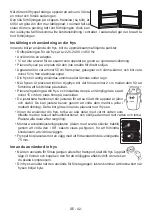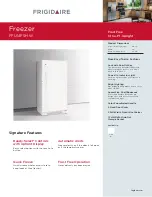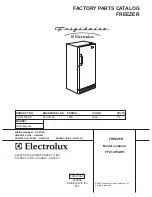
EN -27-
•
Before freezing fresh food, divide it into portions that can be consumed in one sitting.
•
Consume thawed frozen food within a short period of time after defrosting
•
Never place warm food in the freezer compartment as it will thaw the frozen food.
•
Always follow the manufacturer's instructions on food packaging when storing frozen
food. If no information is provided food, should not be stored for more than 3 months
from the date of purchase.
•
When purchasing frozen food, make sure that it has been stored under appropriate
conditions and that the packaging is not damaged.
•
Frozen food should be transported in appropriate containers and placed in the freezer
as soon as possible.
•
Do not purchase frozen food if the packaging shows signs of humidity and abnormal
swelling. It is probable that it has been stored at an unsuitable temperature and that the
contents have deteriorated.
•
The storage life of frozen food depends on the room temperature, the thermostat setting,
how often the door is opened, the type of food, and the length of time required to
transport the product from the shop to your home. Always follow the instructions printed
on the packaging and never exceed the maximum storage life indicated.
• The maximum amount of fresh food (in kg) that can be frozen in 24 hours is indicated on
the appliance label.
•
The freezer compartment is used for freezing fresh food, for storing frozen food, and for
making ice cubes.
•
If the freezer door has been left open for a long time or not closed properly, frost will form
and can prevent efficient air circulation. To resolve this, unplug the freezer and wait for
it to defrost. Clean the freezer once it has fully defrosted.
•
Remove baskets, covers, and so on, to increase the storage volume of freezer.
•
The freezer volume stated on the label is the volume without baskets, covers, and so on.
IMPORTANT
•
Do not refreeze thawed food. It may pose a danger to your health and cause problems
such as food poisoning.
•
Do not put warm food in the deep freeze compartment until it has completely cooled. It
will thaw already frozen food, which may then rot.
•
When purchasing frozen food, make sure it has been stored under appropriate conditions
and the packaging is not damaged.
•
Do not purchase frozen food if the packaging shows signs of humidity or if it has a foul
odour. The food may not have been stored correctly and may have gone rotten.
•
The storage life of frozen food depends on the room temperature, the thermostat setting,
how often the door is opened, the type of food, and the length of time required to transport
the product from the shop to your freezer. Always follow the instructions printed on the
packaging and never exceed the maximum storage life indicated.
NOTE:
Remove frozen food from the freezer the day before consumption, and put in
the bottom compartment of the refrigerator. This helps reduce the temperature in the
refrigerator, which in turn saves energy. If the frozen food defrosts in an open area, energy
loss will occur.
Summary of Contents for VF 10144
Page 92: ...52315612...

